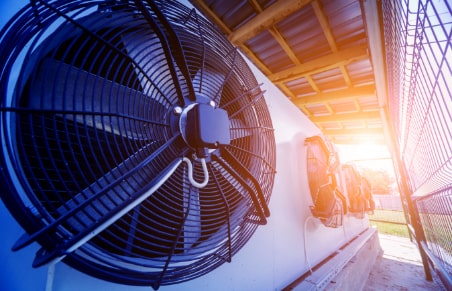UV Lamps are Effective on Cryptosporidium Disinfection
UV disinfection systems with low-pressure or medium-pressure UV lamps have been used for almost 3 decades now. And their importance for effective disinfection has not faded and won’t fade away in upcoming years.
UV lamps offer robust disinfection benefits starting from deactivating many microorganisms, environmental friendliness to being cost-effective, chemical-free and more.

But one of the significant advantages of using UV treatment has been the eradication of parasites, especially Cryptosporidium. As compared to other water disinfection methods, the efficacy of UV lamps to deactivate parasites is significantly high. Here’s why deactivating Cryptosporidium is essential.
Importance of Cryptosporidium Disinfection
Deactivating Cryptosporidium is essential as it can cause infection in the mammalian intestinal tract. The parasite can be ingested through the consumption of contaminated water. And a total of 132 oocysts is enough to cause noticeable symptoms. The symptoms include non-bloody, watery, and acute diarrhea.
Cryptosporidium affects both healthy and immunocompromised individuals. However, the effects in immunocompromised individuals are adverse and prolonged. The infection can last from anywhere between 4 weeks to 6 months based on your current health conditions.
Abdominal pain, vomiting/nausea, and anorexia are some other symptoms of Cryptosporidium. The parasite is also known to infect other areas of the body such as the lungs, gall bladder, and liver.
As you can see, Cryptosporidium can wreak havoc on your system. And hence it is essential to disinfect the water using disinfection methods.
UV light for disinfection of Cryptosporidium
Now, let’s look at why using UV light for disinfection is highly effective at deactivating Cryptosporidium. And here’s the research to support the statement.
Bukhari et al.
The breakthrough research came in 1998 by Bukhari et al. which brought to light the effectiveness of UV light for the disinfection of parasites Cryptosporidium. The study was sponsored by Calgon Carbon Corporation. The study included mouse infectivity assays and tested the effects of medium-pressure UV lamps on the disinfection of Cryptosporidium.
The results showed that medium-pressure UV doses of as low as 19 mJ/cm2 caused a 3.9 log inactivation of Cryptosporidium. This study came at a point when it was widely known that UV light for disinfection can deactivate bacteria and viruses. So, knowing that it can deactivate parasites too increased the efficacy of UV treatments.

Clancy et al.
In another study conducted in 2001, Clancy et al. checked the efficacy of low-pressure UV lamps on Cryptosporidium disinfection. The study used low-pressure UV lamps with a dose of 4000 to 8000 mJ/cm2. The dose caused an inactivation of more than 4 log Cryptosporidium oocysts.
Both these studies have effectively shown the benefits of using UV lamps to deactivate Cryptosporidium oocysts.
Bottom Line
Cryptosporidium is a known parasite causing intestinal tract infection with severe symptoms. Since it spread through the consumption of contaminated water, it is highly essential to disinfect water sources to ensure decreased spread of the parasite.
Over the years, research has shown the effect of UV lamps, whether low-pressure or medium pressure, on deactivating Cryptosporidium oocysts. And contributing to the same effort, we at Light Spectrum Enterprises, Inc. offer a wide range of UV lamps for residential, commercial, and industrial spaces.
Our manufacturing team can also provide OEM services to ensure UV lamps are tailored to your requirements. Also, you can get answers to critical UV lamps and disinfection questions from our team which has acute domain knowledge.
Contact us to find out more.

